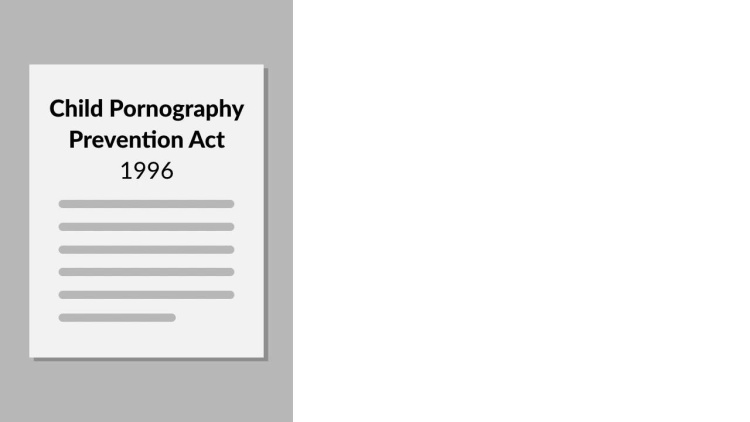Ashcroft v. Free Speech Coalition
United States Supreme Court
535 U.S. 234, 122 S.Ct. 1389, 152 L.Ed.2d 403 (2002)
- Written by Megan Petersen, JD
Facts
Congress passed the federal Child Pornography Protection Act (CPPA) in 1996 to extend federal prohibition against child pornography to sexually explicit images that appear to depict minors but that were actually produced without using real children. Specifically, the statute prohibited possessing or distributing images that could be created by using adults who look like minors or by using computer imaging. The Free Speech Coalition (plaintiff) brought suit in federal district court against Attorney General Ashcroft and the United States government (defendant) on the grounds that the CPPA violated the First Amendment. The district court upheld the CPPA. The court of appeals reversed, claiming that the CPPA was unconstitutionally broad. The United States Supreme Court granted certiorari.
Rule of Law
Issue
Holding and Reasoning (Kennedy, J.)
Concurrence/Dissent (O’Connor, J.)
Dissent (Rehnquist, C.J.)
What to do next…
Here's why 904,000 law students have relied on our case briefs:
- Written by law professors and practitioners, not other law students. 47,100 briefs, keyed to 995 casebooks. Top-notch customer support.
- The right amount of information, includes the facts, issues, rule of law, holding and reasoning, and any concurrences and dissents.
- Access in your classes, works on your mobile and tablet. Massive library of related video lessons and high quality multiple-choice questions.
- Easy to use, uniform format for every case brief. Written in plain English, not in legalese. Our briefs summarize and simplify; they don’t just repeat the court’s language.





